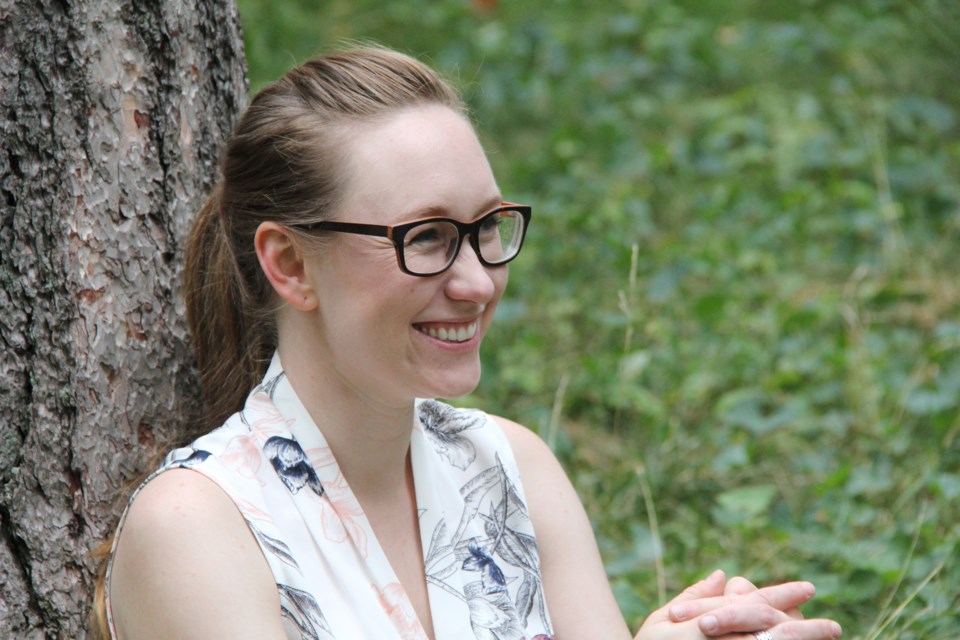GuelphToday asked candidates for council in the Oct. 22 municipal election to provide a short bio and their platform and/or why they chose to run.
THE PERSON: Aggie Mlynarz was born in Germany, and came to Ontario shortly after. She has lived in Guelph for more than 20 years, and involved herself in numerous community projects and initiatives in that time. She became a volunteer at Ed Video, a non-profit, organization supporting independent artists. Her time there was instrumental in learning how communication can be a powerful tool for groups to address issues of discrimination, including social, environmental, and economic vulnerabilities in the community. Her later work on independent features in the private film sector gave her first hand insight on how critical political institutions are to the art sector; specifically in protecting workers rights to fair compensation and against sexual discrimination.
She holds a B.A. and M.A. from the University of Guelph theatre studies department where she focused on numerous social justice issues through political theatre in Canada. Much of her activism took place on the stage; finding the personal in local issues. After lengthy research, she wrote and performed pieces on navigating feminism through social media, local conflicts between environmental activists and developers, as well as a deeply personal piece tackling issues of union and labour reform.
Over the years her passion for social justice has transformed into a deeply rooted belief in civic responsibility. Addressing challenges faced by individual members to the community at large is her main motivation in pursuing political office. She affirms it is the position of politicians to listen and to ensure communication is open and accessible to every constituent.
THE PLATFORM: I love Guelph. I've lived here for more than 20 years, and feel so fortunate to have such a beautiful and warm community around me.
And, our community is expanding at an unprecedented rate. With this new growth we are being faced with a number of challenges, from affordability to neighbourhood safety, and we need responsible management that works to find community-based solutions with the brilliant resources already available in our city. I want people living and growing up here to have the same opportunities and warmth afforded to me. For that, we need to communicate, collaborate, and come together.
City Services
The bottom line for the public sector should always be high quality service. Service that is dependable, responsive, and efficient. The public suffers most when it is made to compete with profit. The focus on services we rely on everyday should not be how much is being returned to the top, but how well those services are being delivered to everyone in the city. As a city, if we cannot be innovative and dependable in our service operations, we won’t remain a competitive place to invest in.
As Guelph grows and matures we need to be planning for where our services should be five years from now. City services need to be staffed for the future. We need to chart where there is potential for economic viability in the new circular economy. We need to collaborate to determine how growth will change operating structures from transit, to emergency services, to waste management. Instead of putting strain on services and relying on overtime, it’s time to support and grow operations in this next stage of growth and development.
Groundwater
We are so fortunate to have access to clean, healthy drinking water straight from the tap. Our incredible zero waste water treatment facility (with some of the highest testing standards) is the unsung hero in our city. Ensuring this resource is preserved must always stay in the purview of every election. To continue to benefit from groundwater, we need to maintain a strong consciousness on how our interaction with the environment impacts aquifer chargers. With much work being put into Natural Heritage sites, development around the Paris Galt moraine needs to be defined by the landscape, over developers’ interests.
Mental Health and Addiction
Develop a mental health strategy with community stakeholders, emergency services, and the hospital to determine where services can be improved and what is the most effective role the municipality can play in providing access to those services. Review what resources are available and what is lacking to provide care needed to the community.
Continue the overdose prevention site at the Community Health Centre. Take direction from the CHC in regards to whether a permanent overdose site is necessary. Support the CHC to best practices regarding harm reduction. Determine further opportunities within the Mental Health Strategy to continue to improve the presence of the four pillars drug strategy within the community.
Affordable Housing
Housing will never be affordable until it is addressed through a multi-layered strategy. There is no silver bullet. The increasing downloading of responsibilities on municipalities means we need to be engaged on the full spectrum to tackle affordable housing.
There are almost 1,500 people on the waiting list to access social or public housing in Guelph alone. Challenges such as below 1% vacancy rate stagnates competition and makes fewer affordable rental options available. Furthermore, private rentals that used to provide affordable options for the short term are slowly being sold to private developers and have become unreliable long term solutions.
